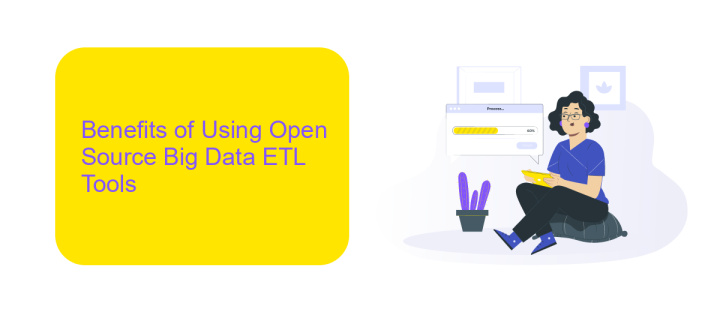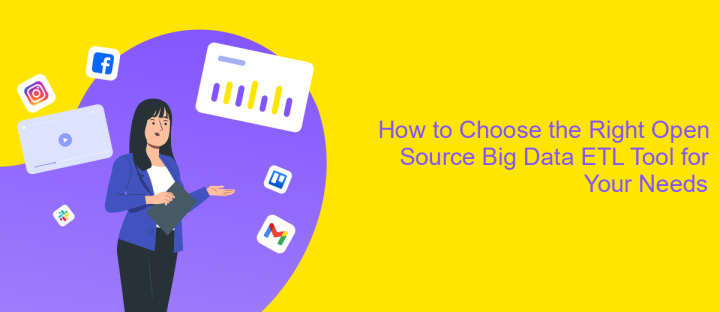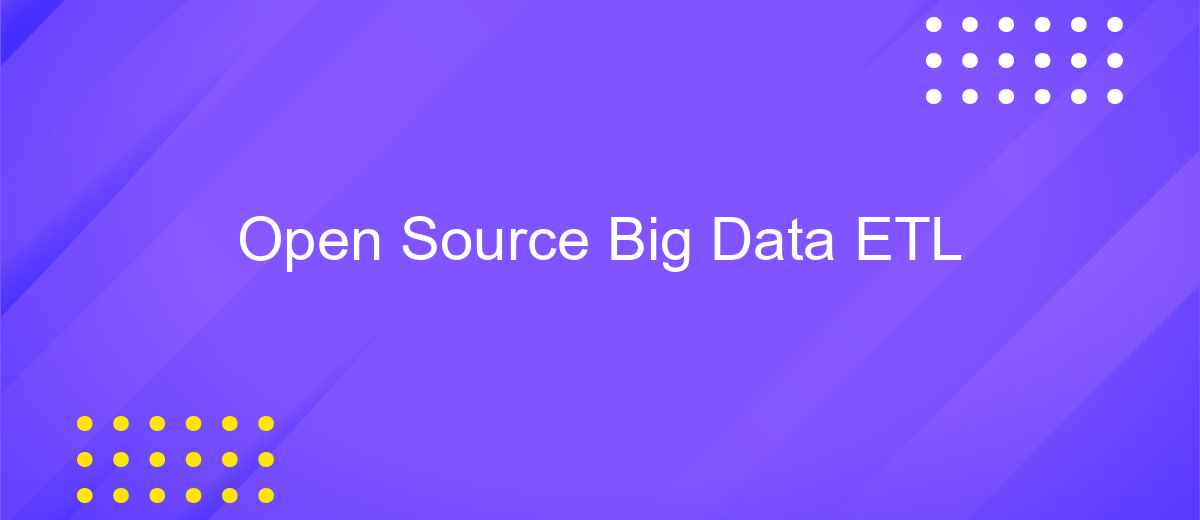Open Source Big Data ETL
Open Source Big Data ETL (Extract, Transform, Load) tools have revolutionized the way organizations handle massive datasets. These tools offer cost-effective, flexible, and scalable solutions for data integration and processing. By leveraging open-source technologies, businesses can streamline their data workflows, enhance data quality, and drive insightful analytics, all while reducing dependency on proprietary software.
Introduction
Open Source Big Data ETL (Extract, Transform, Load) tools have revolutionized the way organizations handle vast amounts of data. These tools are essential for collecting, processing, and moving data from various sources to data warehouses or analytics platforms, enabling data-driven decision-making and insights.
- Cost-effective: Open source tools eliminate the need for expensive licenses.
- Scalability: Easily handle growing data volumes and complexity.
- Community support: Benefit from collective knowledge and continuous improvements.
- Flexibility: Customize tools to fit specific business needs.
One of the key aspects of modern ETL processes is the integration of diverse data sources. Services like ApiX-Drive simplify this by offering automated data integration solutions. ApiX-Drive enables seamless connections between various applications and platforms, ensuring that data flows smoothly and efficiently. By leveraging such services, organizations can focus more on data analysis and less on the technicalities of data integration, thereby enhancing productivity and decision-making capabilities.
Benefits of Using Open Source Big Data ETL Tools

Open Source Big Data ETL tools offer numerous benefits, making them an attractive choice for organizations looking to handle large volumes of data efficiently. Firstly, these tools are cost-effective as they eliminate the need for expensive licensing fees, allowing businesses to allocate resources to other critical areas. Moreover, the open-source nature ensures a high level of customization and flexibility, enabling organizations to tailor the tools to meet their specific data processing needs.
Additionally, the community-driven development model of open-source ETL tools ensures continuous improvement and innovation. Users can benefit from regular updates and a wealth of shared knowledge and best practices from a global community of developers. Tools like ApiX-Drive further enhance the integration process by providing seamless connectivity between various data sources and applications, streamlining the ETL workflow. This integration capability is crucial for businesses aiming to maintain agility and scalability in their data operations.
Types of Open Source Big Data ETL Tools

Open Source Big Data ETL tools have become essential for managing and transforming large volumes of data efficiently. These tools are designed to extract data from various sources, transform it into a usable format, and load it into a destination system. They offer flexibility and scalability, making them ideal for handling big data workloads.
- Apache NiFi: Known for its user-friendly interface and real-time data ingestion capabilities, Apache NiFi is a powerful tool for automating data flow between systems.
- Talend Open Studio: This tool provides a comprehensive suite for data integration, data quality, and big data processing, making it a popular choice among data engineers.
- Apache Airflow: With its robust scheduling and monitoring features, Apache Airflow is ideal for orchestrating complex data workflows and ETL pipelines.
- ApiX-Drive: Specializing in integrating various applications and services, ApiX-Drive simplifies the automation of data transfers, ensuring seamless connectivity between different systems.
These tools not only facilitate efficient data management but also empower organizations to leverage big data for insightful analytics and decision-making. By using open-source ETL tools, companies can customize and scale their data processes to meet specific business needs.
How to Choose the Right Open Source Big Data ETL Tool for Your Needs

Choosing the right open source Big Data ETL tool for your needs can be a daunting task, given the plethora of options available. It's crucial to consider various factors to ensure that the tool aligns with your specific requirements and business goals.
First, evaluate the scalability of the tool. Ensure it can handle the volume of data you expect to process, both now and in the future. Next, assess the ease of use and the learning curve associated with the tool. A user-friendly interface can significantly reduce the time and effort required for implementation and maintenance.
- Scalability and performance
- Ease of use and learning curve
- Community support and documentation
- Integration capabilities with other tools and services
- Cost and licensing
For seamless integration, consider tools like ApiX-Drive, which can help automate and streamline your data workflows by connecting various applications. Taking these factors into account will help you select the most suitable open source Big Data ETL tool for your organization.
Conclusion
Open Source Big Data ETL solutions have revolutionized the way organizations handle and process vast amounts of data. By leveraging community-driven tools, businesses can achieve scalable, flexible, and cost-effective data integration and transformation. These solutions not only foster innovation but also provide the transparency and customization required to meet specific organizational needs.
Moreover, integrating tools like ApiX-Drive can further streamline the ETL process by automating data flows and simplifying the connection between diverse data sources. This ensures that data pipelines are efficient, reliable, and easy to manage. As the landscape of big data continues to evolve, embracing open source ETL solutions, complemented by robust integration services, will be crucial for staying competitive and driving data-driven decision-making.
FAQ
What is Open Source Big Data ETL?
What are some popular Open Source Big Data ETL tools?
How can I automate and integrate my ETL processes?
What are the benefits of using Open Source Big Data ETL tools?
Are there any challenges associated with Open Source Big Data ETL?
Time is the most valuable resource in today's business realities. By eliminating the routine from work processes, you will get more opportunities to implement the most daring plans and ideas. Choose – you can continue to waste time, money and nerves on inefficient solutions, or you can use ApiX-Drive, automating work processes and achieving results with minimal investment of money, effort and human resources.

